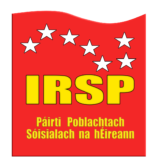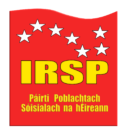It has been reported in recent days that two members of the PSNI have been charged for firing their weapons into the air during a house party in the Dunmurry area on Sunday. A further three more members have been cautioned for breaching social distancing regulations that they are responsible for enforcing. This relates to the same chaotic house party.
The IRSP understands that the two members charged for firing their weapons into the air are actually members of the Paramilitary Crime Task Force. We are informed by local sources in the area that the officers arrested began arguing; this escalated into a scuffle which spilled out onto the street which is where the shots were fired.
PSNI vehicles then arrived on the scene to calm the situation and quickly ushered their two colleagues away, however it has not been reported that, according to neighbours in the street, an unknown quantity of cocaine was located in the property and taken away. This became evident during the ranting of one of the officers as he was being put under arrest at the scene, apparently angry that he was being questioned by his own colleagues.
A resident, disturbed by the commotion, came to the front of their home and was videoing the altercation but was then forced to delete the video from their phone under threat that their device would be confiscated, so the PSNI accomplished in their mission to keep these events relatively off the record, aside from their own account of course.
It has now emerged that the PSNI have increased random drug tests for officers following the discovery that quantities of drugs that have been confiscated during house raids carried out by the Paramilitary Crime Task Force have been gradually going missing from their evidence storage facility.
This event poses serious questions as to the competence of the PSNI and particularly their PCTF which has been granted tens of millions of pounds in funding from the tax payer.
This is apparently a special unit within the PSNI, established to tackle, in their eyes, the most serious ‘organised crime gangs’ in Ireland but judging by their conduct, they seem capable of establishing an organised crime gang of their very own.
The IRSP are confident that working class areas will continue, and rightfully so, to avoid using the PSNI for any sort of assistance, regardless of the attempts by politicians to persuade them otherwise. This is not a respectable police force as portrayed on the news regularly. The PSNI are paid thugs that carry weapons; that is their legacy in this country, no matter what they change their name to, and that remains a fitting description of them to this very day.

